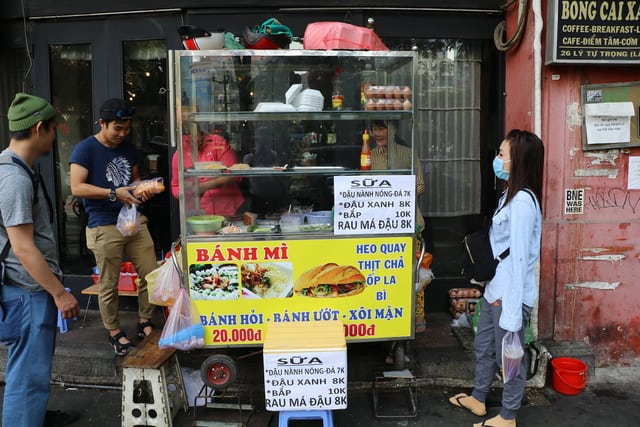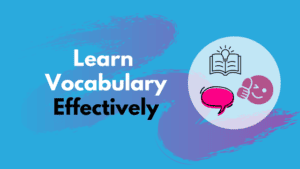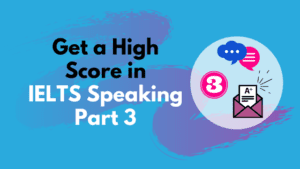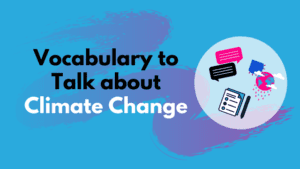Introduction
If you have ever wondered what an IELTS Speaking Band 9 conversation looks like, well, you are about to find out.
I recently hooked up with Ho Kind Dat, an IELTS teacher from Vietnam, to discuss different IELTS questions. From our conversation below you will
- hear how he answers the questions
- see what IELTS Speaking Band 9 language looks like
- get some amazing tips to help you prepare for the test
What you will learn
IELTS Speaking Part 1 Questions: Your Hometown
I asked Dat the following questions
- Where do you live?
- What do you like about your hometown?
- What would you change?
Here is some of the feedback on his answers
He uses a very wide range of vocabulary for this topic:
- A foodie (n.) = someone who loves eating
- mega-cities (n. Pl.)= big cities
- infrastructure (n. Uncountable) = roads, bridges, buildings,
- residential areas (n. Pl.= areas for living (not commercial)
- skyscrapers (n. Pl.)= high-rise buildings
- amenities (n. Pl.)= facilities, e.g. restaurants, metro, buses, shops
He uses building blocks to create more complex sentences
I’ve got access to pretty much any amenity you could think of
Notice how this sentence is made up of ‘building blocks’ of sorter phrases, so making this a more complex sentence.
- I’ve got access to all amenities
- I’ve got access to pretty much all amenities
- I’ve got access to pretty much any amenity you could think of
He talks fluently and any pauses are just for getting ideas, not words.

IELTS Speaking Part 1 Questions: Weekends
I asked Dat the following questions
- What do you usually do on weekends?
- Did you do anything special last weekend?
- What will you do next weekend?
Here is some of the feedback on his answers
Overall, he uses a range of native-speaker tactics to help him keep speaking fluently and accurately.
Self-correction
‘Schedule downtown erm… downtime’
He creates thinking time
‘Let me try to remember’
He asks himself questions
‘What else do they do?’
He uses informal language
- Hang out with friends
- Catch up with them
He uses Idiomatic expressions
- If work calls for it =if it’s necessary
- Up to my neck in deadlines = I have too many
He uses different tenses correctly.
He responds correctly to quick changes in tense that IELTS Speaking Part 1 often has. The usual tenses tested in Part 1 are present, past and future. See some examples of how Dat expresses theses below.
PRESENT HABIT
- They seek refuge in those malls
- They do a bit of window shopping
PAST
- Grabbed a coffee
- Took it easy
FUTURE
- Most likely, I’m going to be doing the same stuff
IELTS Speaking Part 3 Questions: Clothes
I asked Dat the following questions
- What kind of clothes do people wear in Vietnam?
- When do people wear traditional kinds of clothes?
- Is it a good idea to have obligatory school uniform for school children?
- Should adults be forced to wear a uniform in the workplace?
- Do you agree we can judge a person by the clothes they wear?
Here is some of the feedback on his answers
He gave lots of examples
This helped him to develop his answers. It also helped him show off a wider range of vocabulary.
He uses Band 9 level Vocabulary
- Very wide range
- Great sense of collocation and style
- Express precise meaning
For example,
- Requiring students to wear a uniform would do the trick = work well
- Make a good impression
- A prestigious school = with a good reputation
- Project an air of professionalism = to look professional
- Looking presentable = clean and tidy
- Have a lucrative income = profitable
- Not an accurate metric = unit of measurement
He can speak fluently
- Keeps going over long sentences
- Develops topics
- Links sentences
- Pauses are only for ideas, not language

How formal should you be in IELTS Speaking?
- You should be informal and relaxed, but polite.
- Don’t be too informal, you are in an interview not in the pub with your best mate.
- Don’t use slang, For example, avoid saying ‘hello mate’ or ‘what’s up dude?’
- Imagine you are speaking to a work colleague or a teacher at school over a coffee.
- Aim to use natural conversational English.
- You don’t need to wear formal clothes, just wear casual but smart.
Tips to Prepare for the IELTS Speaking Test
Immerse yourself in English.
Spend a lot of time just improving your overall level of English.
Don’t cram, so don’t try to learn 100 new words in 2 days.
Plan your study well, so you have time to improve your overall level of English
Familiarise yourself with the test
Know what examiners are looking for
Spend some time doing test practice
When speaking in the test be natural and a little strategic
Find out more about Dat’s work here:
https://www.ieltswithdatio.com/
https://www.facebook.com/groups/ieltswithdatio/
If you liked this post, leave a comment below and tell us your tips for preparing for IELTS Speaking.
As a community, we can share and learn together.





17 thoughts on “IELTS Speaking Band 9 Conversation and Tips”
Hi keith . No need to reply . I just wanted you to know U R the best . U helped me and my friends a lot . Thank you ❤
Happy to hear that and happy to reply! 😄
Thank you very much for your great efforts. I am an IELTS Trainer from Bangladesh. I am greatly benefited from your blog. I use many resources from your blog during teaching. Please keep up the best work!!
Pleased to hear that – you too, keep up the good work with your teaching!
Thanks a lot, sir. It will encourage me to enhance my skill to assuming IELTS Speaking a lot.
Delighted to hear that. Keep going!
Hi Keith. It looked simple convo, but not easy in actual. I mean, whenever I read tips or examples of IELTS interview questions and answers, I feel like it is an easy test and “why should I be worry”. But I know peaceful river is not shallow. I’m sure I cannot depend on what I already know. I need to practice and read more knowing that I am poor in my vocabulary. Whenever I express my thoughts, I used to say: the word is on the tip of my tongue – then the struggle begin. Anyway, it always boils to “practice makes it perfect”. Thanks for sharing ideas.
Thanks for sharing your thoughts too. I like your metaphor of the peaceful river is not shallow!
It really is about practice and being well prepared.
Good luck!
I want to try about my hometown please comment on it.
My hometown is Rajkot famous for different industries like two wheeler and 4 wheeler parts. It is also known picturrious village and heart of Saurastra region.
Correction below:
“My hometown is Rajkot, famous for different industries like developing two wheeler and 4 wheeler parts. It is also known as a picturesque village and it is in the heart of the Saurastra region.”
Hello thank you ..I’m going to learn a lot …thanks
I have 2 names. My second name is fateme. Actually I always been called fateme…but in formal and school my first name is using…
Thanks for sharing your comment Fateme, I hope you do learn lots!
**boils down to
thank you so much for sharing this.i’m looking forward to your future emails. Thanks
You are welcome Marianne!
Both of you did well in this conversation. Lots of lessons to learn. Keep doing a great job Keith!
Thanks for your encouragement, that is great to hear!